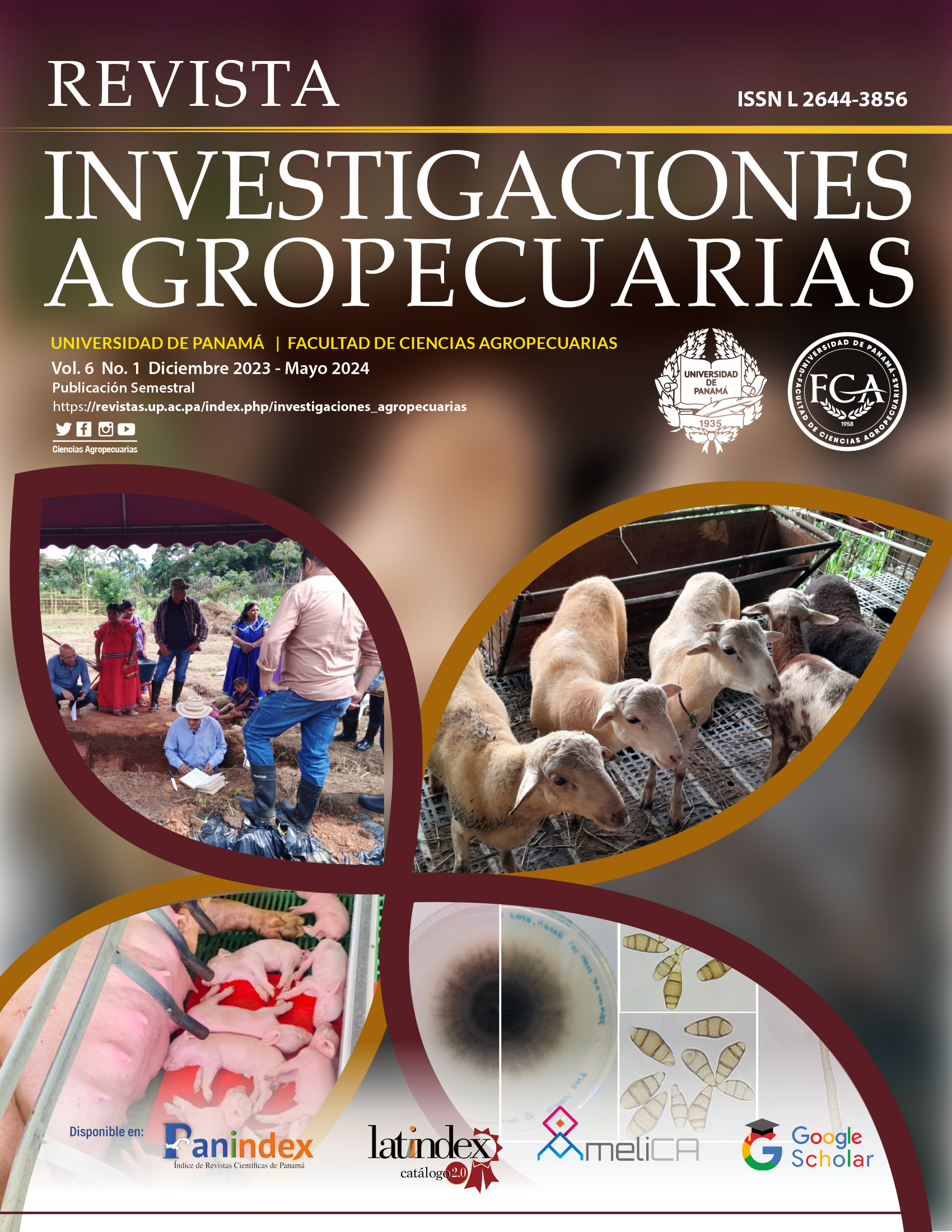

Copyright (c) 2023 Revista Investigaciones Agropecuarias

This work is licensed under a Creative Commons Attribution-NonCommercial-ShareAlike 4.0 International License.
The influence of THI, vagina temperature and daily heat stress were evaluated over the results of embryo transfers and gestation in 160 cows from dairy crosses aged from 3 to 6 years and classified as heifers, cows without calves and cows with calves. All animals were synchronized with the conventional scheme for FTAI and transfers were made at fixed time. 46 recipients received fresh embryos produced in vitro (FreEIVP) and 114 frozen embryos produced in vitro (FroEIVP). The environment at time of embryo transfers was typified by daily direct psychrometrics procedures (ambient temperature, relative humidity and THIbovine) and also by indirect psychrometric evaluation. Heat Stress at the moment of embryo transfers was severe as THI was 82.92 ± 2.84°C%, which indicated all cow recipients were under daily heat stress. A 25.2% pregnancy rate was achieved with FroEIVP and 39.1% with FreEIVP. Tegumentary (TT) and vaginal temperatures (VVT) were not different in the recipients according to type of embryos, neither between cow categories (p>.05). The gestational failures increased from 39.5 °C (P<.01) in fresh and frozen embryos. The VVT influence in the pregnancy index in both types of embryos (p<.01). The negative pregnancy index increased when VVT was 39.5°C in fresh and frozen embryos (p<.01). The FreEIVP showed a smaller negative pregnancy index when VVT was 39.5°C; which -15.6% smaller than FroEIVP. FreEIVP should be used when VVT ? to 39.5°C and FroEIVP when VVT ? a 39.0 °C in order to improve pregnancy index after embryos transfers in the tropic.